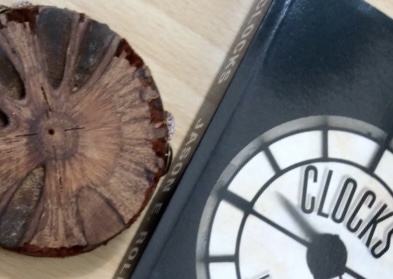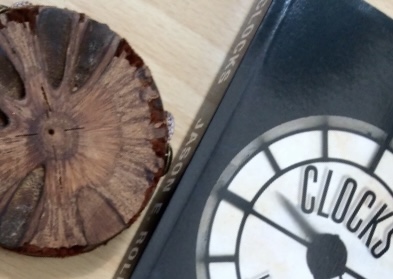Elizabeth Bowen Stories (12)
AS CONTINUED FROM THE ELEVENTH PART OF THIS REVIEW OF ALL ELIZABETH BOWEN’S STORIES HERE: https://cernzoo.wordpress.com/elizabeth-bowens-stories-11/
My reviews of EB stories so far, in alphabetical order: https://dflewisreviews.wordpress.com/31260-2/
My previous reviews of general older, classic books: https://dflewisreviews.wordpress.com/reviews-of-older-books/ — particularly the multi-reviews of William Trevor, Robert Aickman, Katherine Mansfield and Vladimir Nabokov.
“She never had had illusions: the illusion was all.” — EB in Green Holly
SEE BELOW FOR MY ONGOING REVIEWS OF BOWEN’S STORIES



THE MAN OF THE FAMILY
“Such awkward clashes often occurred in novels.”
If not in short stories? A Bowen-beautifully written but straightforward tranche of social comedy and social morals in the thirties around Regent’s Park. William the new young so-called man-of-the-family amongst two Aunts and two nieces, the pretty niece Rachel deeming the other niece Patsey a ‘slug’, and a man called Chummy who arguably has various degrees in a being a divorced cad, a bounder and a financial chancer. A tranche of life that comes to no conclusion other than they are all quite madly self-deceived.
“She ran in and out of documents like a spider, at demoniacal speed.”
“Patsey kept re-settling her cushions behind her, and Rachel re-crossing her legs; the room was full of the amiable drooping silence of relatives who have nothing special to say.”
“…manners (or people not having them) undermine happiness far quicker than morals.”
Aunt Luella pent up like an alarm clock, as the shutter shook.
But which dog dug up the shot poodle?
My review of DEAD MABELLE: https://dflewisreviews.wordpress.com/2021/11/10/zenos-halfway-to-paradox-if-not-paradise/
I DIED OF LOVE
“If a dress coming downstairs, and a dress going up brushed against one another, they did not whisper.”
Another remarkable story, with undying death as its cursor, one that carries the drops of an awaited storm in a single minute. The repercussions of the death of “a mystery factory”, a sewing establishment, run by Miss Mettishaw who talks above or in tune with the noise of the sewing-machine, a sewing woman now part of the narrators’ first person plural home. Miss M once running an establishment where one of the assistant sewers coughs blood over the material of a richly betrothed girl’s would-be wedding dress, and a story catalyst, in the shape of a debt-laden, but handsome, soldier who affected the made-to-ill-measure coordinates of all whispered-of characters, including the betrothed girl with ballroom shoulders as part of a complete figure, including the sick coughing sewer, including the emotions of Miss M herself, and including the built-in fateful destruction of the mystery factory — and the eventual arrival of Miss M in our communal home or head. Amid a thunderstorm as well as a renewed surge of noisy sewing and its promised aftermath. Such a complex stitching, this story’s texture is more than just satisfying; it somehow clogs the throat and makes the reader choke, too, upon its ‘cascade fern’ of still unresolvable implications, and its ominous hawk in the still clearing sky. I died of story.
….to another dying love to have already died of?
A LOVE STORY 1939
“From a cabinet came a voice announcing the six o’clock news. In the middle of this, three berries fell from a vase of holly and pattered noisily into a brass tray.”
This opens with the demands of a theatrical play, various characters at an Irish hotel with a nearby Protestant church, and someone visiting such a posh hotel from via the woods and the pink house near the sea. There is also a honeymoon couple, the new husband typing…
“…typewriter in the pit of his stomach, chin tucked down into his chest. With elbows in to his ribs in a trussed position, he now and then made a cramped dash at the keys.”
I can imagine Bowen typing this story like that. It is as if the start of the war has sent them in all and any directions of crazy intent, even to the extent of someone getting in the wrong car and there being a ricocheting romance between another man and woman, with unlikely impulses, with various theatrical props in the process, and an older woman making up to a young man who looks like the one whom she had just tragically lost: her previous toy boy now lost to the war. She acted her sorrow well, as if acted by someone just like her! Oh yes, that young man sitting in the car that she wrongly got into had gone there to think in a deflated fashion after promising to get his new wife’s ‘pussy gloves’ because she had left them there.
Much business on stage regarding the typist’s feet on the Daily Sketch and someone else trying to get a postage stamp from hotel reception for a letter after the post collection had gone. Perhaps she’ll tear it up and write a warmer letter. I remember this story, but only because the scene of the older woman getting into the wrong car in the darkness has haunted me ever since. Pussy gloves, games of Patience and Penguin books, too. But I still wonder about the nature of pussy gloves!
A misbegotten love story, I guess. A dying love that had already died at birth?
“He switched the lights off, folded his arms, slid forward and sat in the dark deflated – completely deflated, a dying pig that has died.”
“With elbows in to his ribs in a trussed position,…”
ATTRACTIVE MODERN HOMES
“A single twist of smoke from a chimney melted into the thin November grey,…”
It seems as if I was meant to read a huge tranche of the Bowen stories during a November. Any November. The perpetual Noseason edging Winter… as in this Thirties version, an established married couple, with two children called Vera and Freddie, move from their community with a heart, to the heartless new suburb, still being built, of semi-detached houses and people, all pre TV and certainly pre any Internet’s working-from-home. The roads are such that they can’t get their cars out but depend on buses. With a wood nearby and elms opposite their house, and a Nut Lane where Freddie sees a ghost or sees himself.
A mid-life crisis for the wife who ends up embracing the earth — till a timely intervention by another woman, an event only fiction can provide, giving our poignancy at her fate a glimpse of hope. Like the glimpses of hope in du Maurier’s ‘The Apple Tree’ read and reviewed yesterday. But at heart, my heartlessness must point out that any false white blossoms that remain today look even more off-putting, whatever the subsequent interventions. Bowen instinctively knew already of this hindsight waiting to pounce on her timely words of geared apprehension, I guess. Each guess a ghost.
“The armchairs and settee covered in jazz tapestry, the sideboard with mirror panel, the alabaster light bowls, even the wireless cabinet looked sulky, as though they would rather have stayed in the van.”
“No wonder the move had been like stepping over a cliff. Now no one cared any more whether she existed; she came to ask, without words, if she did exist.”
[Then that glimpse —]
“The orange curtains would flame, the bedroom dazzle with sunshine. Though rain often set in later and almost all nights were wet, the early mornings were brilliant. She used to sit up, pull off her shingle-cap and shake out her short, blonde hair, seeing light burn its tips.”
[But—]
“Something behind her silence he learned to dread.”
[Yet the ghosts persisted, haunting us still today—]
“The idea of a ghost’s persistent aliveness comforted some under part of his mind.”
[This idea persists every day I have left.]
“She stood stock still in her buttoned mackintosh, staring woodenly past his shoulder at the bleak wood, unconscious as any dummy of being touched.”
This review continues here: https://horroranthology.wordpress.com/elizabeth-bowen-stories-13/